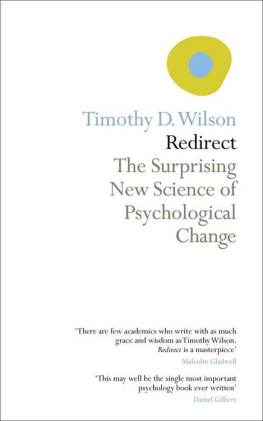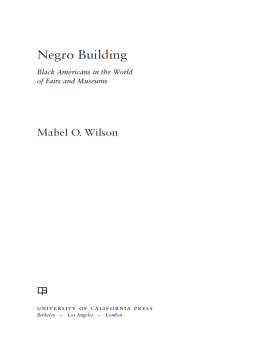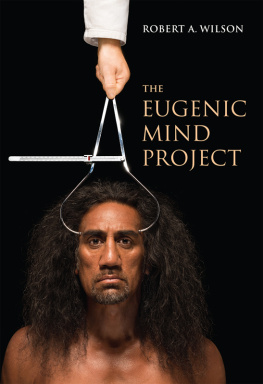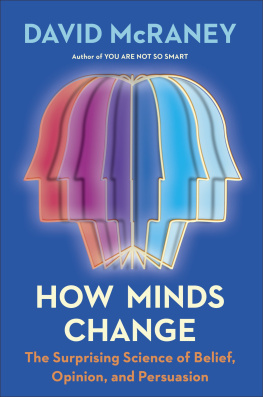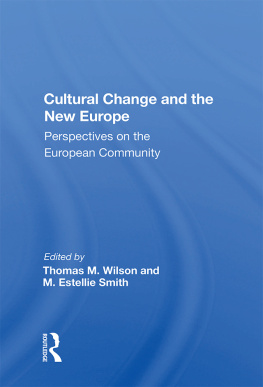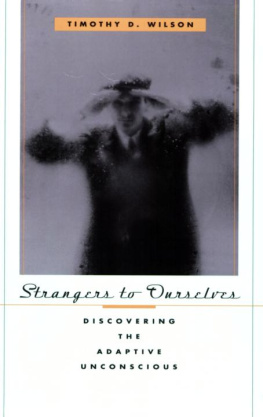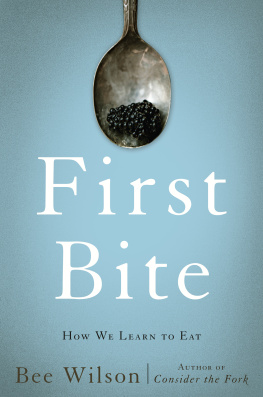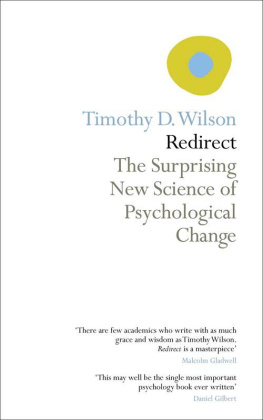Wilson - Redirect: The Surprising New Science of Psychological Change
Here you can read online Wilson - Redirect: The Surprising New Science of Psychological Change full text of the book (entire story) in english for free. Download pdf and epub, get meaning, cover and reviews about this ebook. year: 2011, publisher: Penguin, genre: Politics. Description of the work, (preface) as well as reviews are available. Best literature library LitArk.com created for fans of good reading and offers a wide selection of genres:
Romance novel
Science fiction
Adventure
Detective
Science
History
Home and family
Prose
Art
Politics
Computer
Non-fiction
Religion
Business
Children
Humor
Choose a favorite category and find really read worthwhile books. Enjoy immersion in the world of imagination, feel the emotions of the characters or learn something new for yourself, make an fascinating discovery.
Redirect: The Surprising New Science of Psychological Change: summary, description and annotation
We offer to read an annotation, description, summary or preface (depends on what the author of the book "Redirect: The Surprising New Science of Psychological Change" wrote himself). If you haven't found the necessary information about the book — write in the comments, we will try to find it.
Redirect: The Surprising New Science of Psychological Change — read online for free the complete book (whole text) full work
Below is the text of the book, divided by pages. System saving the place of the last page read, allows you to conveniently read the book "Redirect: The Surprising New Science of Psychological Change" online for free, without having to search again every time where you left off. Put a bookmark, and you can go to the page where you finished reading at any time.
Font size:
Interval:
Bookmark:

The Surprising New Science of Psychological Change

ALLEN LANE
an imprint of
PENGUIN BOOKS
TIMOTHY D. WILSON is the Sherrell J. Aston Professor of Psychology at the University of Virginia, where he has received the All University Outstanding Teaching Award and the Distinguished Scientist Award. He is the author of Strangers to Ourselves, which was named by the New York Times Magazine as conveying one of the most influential ideas of 2002, and is the coauthor of the bestselling social psychology textbook Social Psychology, now in its seventh edition. Wilson has also published articles in Science and the New York Times, among other publications and journals. His research has been funded by the National Science Foundation, the National Institute of Mental Health, and the Russell Sage Foundation, and in 2009, he was elected to the American Academy of Arts and Sciences. He lives in Charlottesville, Virginia.
To my parents,
Elizabeth DeCamp Wilson and Geoffrey Wilson
Police officers Gary Felice and Prince Jones were the first to respond to a house fire on De Leon Street in Tampa, Florida. When they arrived, they heard what every emergency worker dreadsscreams for help from inside a house engulfed in flames. Through a window, they could barely make out the silhouette of a man stumbling and falling, just short of escape. Felice and Jones frantically tried to break down the door, which was secured with burglar bars. It took five minutes of tugging, pulling, and smashing before the door finally gave way, but by then it was too late. The man was curled up like a baby in his mothers womb, said Jones. Thats what someone burned to death looks like.
The next day Gary Felice saw a picture of the victim in the paper and realized that, to his horror, he had known himit was Tommy Schuppel, forty-two, a popular X-ray technician at a local hospital. The fact that Felice had seen his friend die haunted the officer, so much so that he had trouble eating and sleeping. His bosses sympathized and wanted to help, so they did what many police departments do: they scheduled a Critical Incident Stress Debriefing (CISD) session for Felice.
The premise of CISD is that when people have experienced a traumatic event they should air their feelings as soon as possible, so that they dont bottle up these feelings and develop post-traumatic stress disorder. In a typical CISD session, which lasts three to four hours, participants are asked to describe the traumatic event from their own perspective, express their thoughts and feelings about the event, and relate any physical or psychological symptoms they are experiencing. A facilitator emphasizes that it is normal to have stressful reactions to traumatic events, gives stress management advice, answers questions, and assesses whether participants need any additional services. Numerous fire and police departments have made CISD the treatment of choice for officers who, like Gary Felice, witness horrific eventsindeed, some departments require it. It is also widely used with civilians who undergo traumatic experiences. Following the September 11, 2001, terrorist attacks, more than nine thousand counselors rushed to New York City to help survivors deal with the trauma and prevent post-traumatic stress disorder, and many of these counselors employed psychological debriefing techniques.
Psychological debriefing sounds like an effective intervention, doesnt it? An ounce of prevention is worth a pound of cure, and surely getting people to talk about their feelings, instead of bottling them up, is a good thing. Or is it?
Lets put CISD aside for a moment and consider another approach. Instead of asking Officer Felice to relive the trauma of Tommy Schuppels death, suppose we let a few weeks go by and see if he is still traumatized by the tragic event. If so, we could ask him to complete, on four consecutive nights, a simple exercise in which he writes down his deepest thoughts and emotions about the experience and how it relates to the rest of his life. Thats itno meetings with trained facilitators, no stress management advicejust a writing exercise that Felice does on his own four nights in a row.
Which approach do you think would be more effectiveCISD, in which people express their thoughts and feelings right after a traumatic event with the help of a trained facilitator, or the writing technique, which people do in private weeks after the event? If you are like me (and the hundreds of police and fire departments that use it), you would put your money on CISD. Surely early interventions are better than later ones, and offering people the services of a trained professional is better than asking them to sit and write by themselves. But we would be wrong.
It took research psychologists a while to test CISD properly, in part because it seemed so obvious that it was beneficial. When they did, they found something unexpected: not only is CISD ineffective, it may cause psychological problems. In one study, people who had been severely burned in a fire were randomly assigned either to receive CISD or not. Over the next several months, participants completed a battery of measures of psychological adjustment and were interviewed at home by a researcher who was unaware whether they had received CISD. Thirteen months after the intervention, people in the CISD group had a significantly higher incidence of post-traumatic stress disorder, were more anxious and depressed, and were less content with their lives. Similar results have been found in studies testing the effectiveness of CISD among emergency workers. It turns out that making people undergo CISD right after a trauma impedes the natural healing process and might even freeze memories of the event. (This may have been the case with Gary Feliceaccording to a journalist who interviewed him four years after the fire, Felice seemed unable to get rid of the mental image of Tommy Schuppel lying dead on the floor.)
In 2003, after reviewing all tests of the effectiveness of psychological debriefing techniques, Harvard psychologist Richard McNally and his colleagues recommended that for scientific and ethical reasons, professionals should cease compulsory debriefing of trauma-exposed people. Unfortunately, this message has not been widely disseminated or heeded. In 2007, after a disturbed student at Virginia Tech University killed thirty-two students and faculty, students and emergency workers underwent stress-debriefing techniques similar to CISD.
What about the writing exercise? This technique, pioneered by social psychologist James Pennebaker, has been tested in dozens of experiments in which people were randomly assigned to write about personal traumas or mundane topics such as what they did that day. In the short run, people typically find it painful to express their feelings about traumatic experiences. But as time goes by, those who do so are better off in a number of respects. They show improvements in immune-system functioning, are less likely to visit physicians, get better grades in college, and miss fewer days of work.
Why does CISD fail to work, and why is the writing exercise so powerful? It has to do with peoples interpretations of what happens to themas we will see shortly, the writing exercise helps people redirect those interpretations in healthier ways than CISD does. But first, some words about the importance of personal interpretations.
Font size:
Interval:
Bookmark:
Similar books «Redirect: The Surprising New Science of Psychological Change»
Look at similar books to Redirect: The Surprising New Science of Psychological Change. We have selected literature similar in name and meaning in the hope of providing readers with more options to find new, interesting, not yet read works.
Discussion, reviews of the book Redirect: The Surprising New Science of Psychological Change and just readers' own opinions. Leave your comments, write what you think about the work, its meaning or the main characters. Specify what exactly you liked and what you didn't like, and why you think so.

